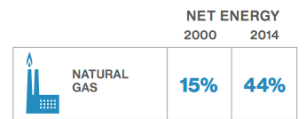Safe Natural Gas? Not in Corroded Pipelines!19 Sep
SBIR Consultant – Market Analysis: There are many issues of importance to be stressed in writing a competitive SBIR proposal. One of these is market analysis: urgent need for your innovation, your competition, showstopper issues, cost, and policy/legal impediments. The blog below is an example of a snapshot market analysis where the use of robots to repair corroded pipelines might be viewed with enthusiasm. In some instances, this is probably true. However, some years ago, I worked for an engineering company that offered such robots. In some cases, sales were thwarted because some pipeline companies did not want to invest in such robots because said companies would have to pay for the repairs. Does your innovation face this challenge?
Greater quantities of natural gas are being produced for electricity generation in New England. However, this gas is flowing through aged pipelines leading to enormous fugitive emissions. The table below shows net energy production due to natural gas from 2000 to 2014, according to the Independent System Operator of New England (ISO NE).

As more and more natural gas flow through corroded pipelines, the likelihood of fugitive emissions increases with horrible environmental consequences as discussed below.
Based on the following statement, the ISO of NE noted that the transition from oil and coal has reduced emissions.
That latter statement is true. However, it totally ignores the fact that “American consumers are paying billions of dollars for natural gas that never reaches their homes, but instead leaks from aging distribution pipelines, contributing to climate change, threatening public health, and sometimes causing explosions,” according to a staff report prepared for Senator Edward Markey (D, MA).
Excerpts from the Markey Report
“Gas distribution companies in 2011 reported releasing 69 billion cubic feet of natural gas to the atmosphere, almost enough to meet the state of Maine’s gas needs for a year and equal to the annual carbon dioxide emissions of about six million automobiles.”
“Natural gas has been touted as a cleaner alternative to coal for producing electricity, but its environmental benefits cannot be fully realized so long as distribution pipelines are leaking such enormous quantities of gas, which is primarily comprised of methane, a greenhouse gas that is at least 21 times more potent than carbon dioxide. Americans also remain at risk from gas explosions and other safety hazards caused by leaky natural gas pipelines.”
“…Gas companies in Massachusetts own and operate one of America’s oldest natural gas pipeline distribution systems, ranking sixth among state systems in the number of miles of main distribution pipelines made of cast iron or bare steel. These companies have replaced less than 4 percent of their leak- prone pipes per year while billing Massachusetts ratepayers an estimated $640 million to $1.5 billion from 2000-2011 for unaccounted for gas.”
Repairing Aged Pipelines: Fixing the problem of fugitive emissions is painfully slow. Why? The graph below shows the amount of lobby money spent by the natural gas industry. Fair to say that it is cheaper to lobby Congress than repair 91,000 miles of pipelines across 46 states. Too bad about the environment.
